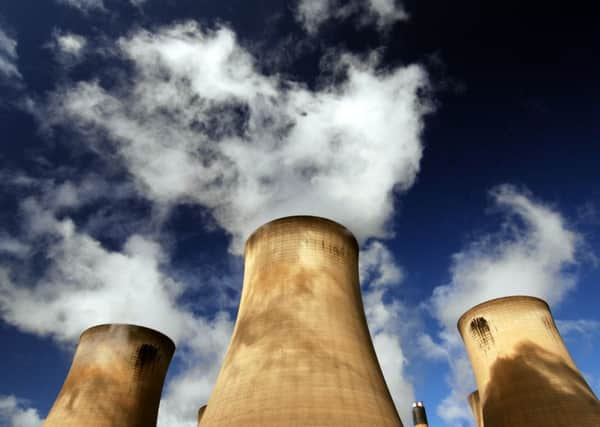Bernard Ingham: Politics of power need to switch on to new realities


It is curious way of safeguarding the nation’s needs when you force yourself to knock together a new department when trouble is at its height.
I know because Lord Carrington rang me at 5.15pm on January 8, 1974, to ask if I would be his Press secretary just after his appointment to lead a new Department of Energy in the midst of an oil, coal and political crisis.
Ye Gods! What a way to run a railway.
Advertisement
Hide AdAdvertisement
Hide AdDo not be surprised if Whitehall, in the midst of a fierce winter, is suddenly convulsed by the need to focus on maintaining energy supplies through a new energy department.
Admittedly, it will be one of the faster U-turns because Theresa May has just wrapped the Department of Energy and Climate Change, to give it its full title, into the Business Department.
Funnier things have happened. After all, we are approaching winter on a wing and a prayer. There are serious doubts whether electricity supply can meet demand in a cold spell.
We first acquired a Department of Fuel and Power in the middle of the Second World War.
Advertisement
Hide AdAdvertisement
Hide AdIt was renamed the Ministry of Power in 1957 but in 1969 was shoved into the Ministry of Technology and then dumped on the Department of Trade from which the 1974 Energy Department was carved.
The 1974 version lasted until 1992 when, with North Sea oil and gas flowing beautifully and miners tamed, it went back into Trade.
It was resuscitated, with climate change added, in 2008 in the full flush of Labour’s environmental zeal.
This time it has been found a home in the Department of Business, Energy and Business Strategy. The climate change bit has, thank God, been lost.
Advertisement
Hide AdAdvertisement
Hide AdIt was always nonsense to have energy supply and climate change in the same department. Either you look after energy supply or you wreck it by catering for the expensively daft ideas of so-called environmentalists and people who want to get their hands on wind, solar, tidal and biomass subsidies while no doubt demanding tax cuts at every opportunity. Every heard of hypocrisy?
This brings me to a post-Brexit opportunity to get an energy policy worthy of the name.
A government department with both energy and business strategy in its title needs to recognise that without adequate and reliable supplies of energy its business strategy won’t be worth a bad penny because there won’t be any business.
I am not trying to invent a new Project Fear. I am stating a simple fact: For the foreseeable future, we do not have enough reliable electricity supply to meet likely maximum demand.
Advertisement
Hide AdAdvertisement
Hide AdInstead, a number of highly expensive schemes – some paying at least six times the average price of electricity – have been cobbled together to get stand by power turned on when needed.
It may or may not work in extremis. Certainly, Theresa May should not count on David Cameron’s luck with the weather.
Worse still, there is no quick way out of this shambles. Power stations – even gas – take years to build and nuclear, the real answer, up to 10 years.
Now that we are supposed to be out of the EU, I see no reason to be bound by their legally binding but wildly optimistic green energy programmes which we, incidentally, have gold-plated.
Advertisement
Hide AdAdvertisement
Hide AdIf I were Secretary of State for Energy I would do six things immediately:
Ditch all clean energy targets as unattainable in the real world, pending realistic assessment.
End new subsidies for all renewables – yes, wind, waves, tides, solar and biomass, the lot. They are wildly uneconomic.
Tell the National Grid that its plans for keeping the lights must work or heads will roll; we need more gas storage and gas-fired power stations.
Advertisement
Hide AdAdvertisement
Hide AdRequire all generators who earn a handsome living in the UK to guarantee meeting their expected future demand.
Whether or not the French end today their interminable delay in starting the proposed Hinkley Point nuclear power station, call for a new timetable for building the nine or so nuclear power stations by various consortia.
Publish a coldly realistic estimate of supply and demand for this winter so that the consumer knows I, at least, have never kidded them.
Meanwhile, I advise Greg Clark, the new Secretary for Business, Energy and Business Strategy, to put his tin hat on (but not, please, his high-vis jacket) and starting banging heads together.